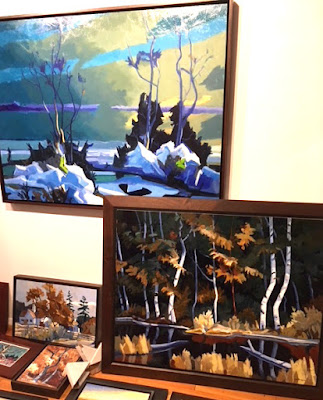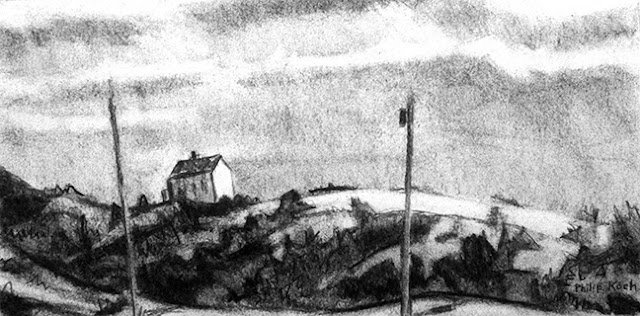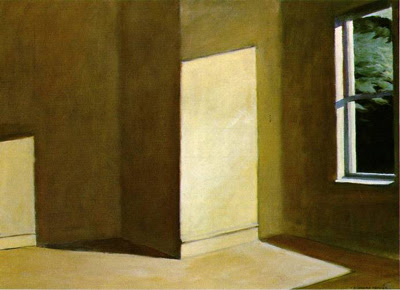Two Paintings Many Meanings
I was moving paintings around my studio last week and temporarily leaned one of my landscapes against another. Something about how the two oils looked together struck me so I let them remain that way for awhile. Accidentally the two canvases had fallen into a conversation. The very different spaces in these paintings seemed to suggest very different states of mind. One used the panoramic view to talk of a wide open expansiveness. The other of a purposely narrowed-down focus on feelings more intimate and personal.
Edward Hopper famously said "If you could say it in words there would be no reason to paint." As elastic as our spoken languages are, I'm convinced much or even most of our experience lies just beyond the grasp of words. The two large oils of mine in the photo above juxtapose two very different parts of our inner experience.
Philip Koch, Chestnut Ridge Panorama, oil on canvas, 36 x 48
inches, 2018
Sometimes our thoughts and feelings seem to race out away from us. We peer out over an expanse of space to other places or other times in our lives. Often this feels exciting or even exalted. Yet other times reminding us the world of experience will forever be so much larger than ourselves.
It was seeing the work of painters from the past that encouraged me to change from making abstract paintings to working as a realist.
Below is a favorite painting by the Hudson River School artist Frederic Church that echoes this "expansive space" model of landscape painting. Clearly Church was loving this view.
Frederic Church, View from Olana in the Snow, oil, ca. 1871
Colby College Museum of Art, Waterville, ME
My job as a contemporary landscape painter is to find the forms that can best hold how it feels to be alive in the world today. We live in a very different time than someone like Church. Consequently painting the landscape in the 21st century leads to a very different style of work.
Other times our awareness seems to scale down and focus in to just a small part of our lives or of the world. Who hasn't been lost for awhile in a reverie of a single place or an event long past? I grew up in a house in the middle of a deep forest. It was nestled in and felt hidden away from the rest of the world.
Philip Koch, Deep Forest Pool, oil on panel, 32 x 40 inches,
2015
One of the most eloquent painters of "closed in" spaces was Worthington Whittredge.
Worthington Whittredge, The Trout Pool, oil on canvas,
1870, Metropolitan Museum of Art, NYC







